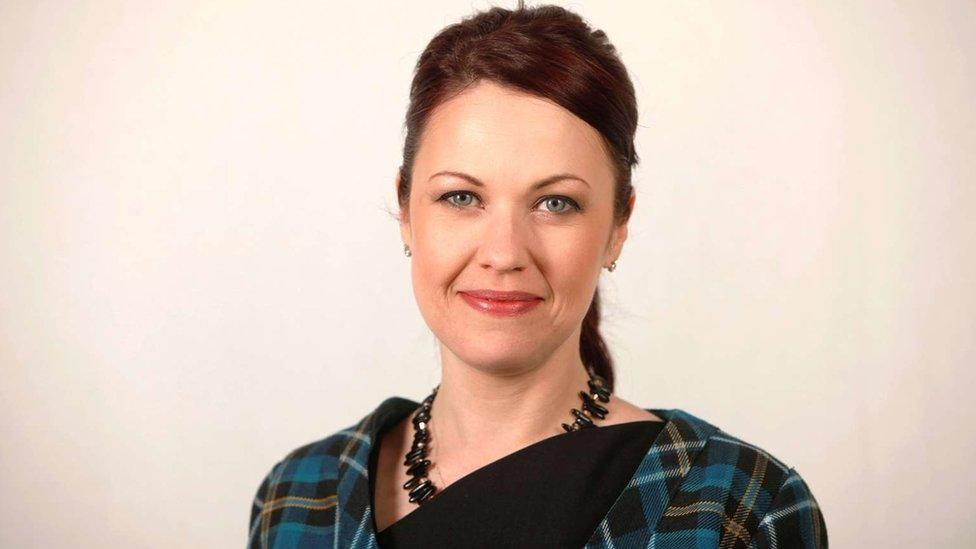'I want the Scottish parliament to stay virtual'
- Published
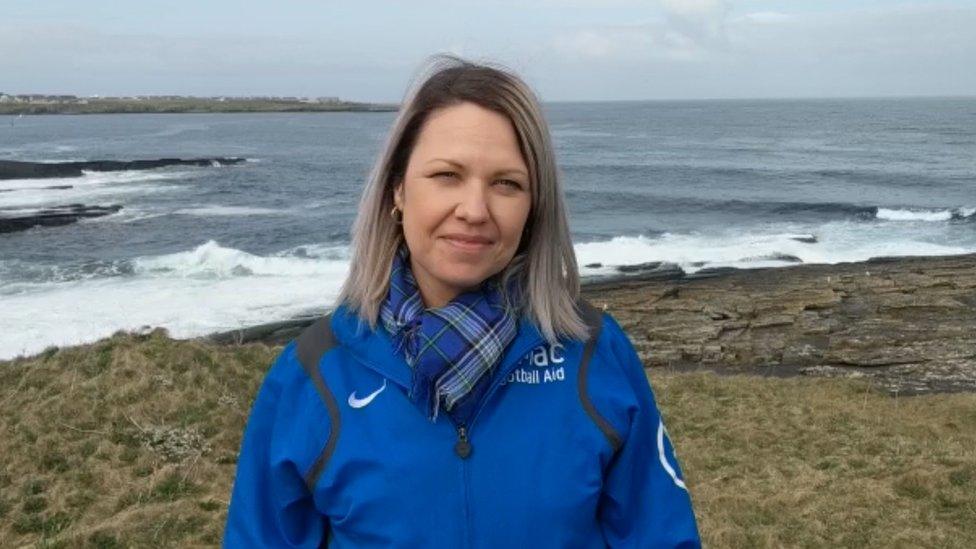
Gail Ross wants to be able to spend more time with her family
Gail Ross was only elected to the Scottish Parliament in 2016, but in February she announced that she wouldn't stand for re-election.
She represents Caithness, Sutherland and Ross at the top of the Scottish mainland, but the job means working mainly in Holyrood. Announcing her decision, she said: "I want to be able to spend more time with my family, to watch my son grow up and to be more involved in local issues".
But the SNP MSP has told BBC Scotland's The Nine that she may reconsider her decision if current "virtual" elements of the job - brought in due to coronavirus - are made permanent.
MSPs are currently able to question ministers and attend committee meetings from home. Previously, they would have had to be physically present in Edinburgh.
After being unable to attend midweek constituency events, Gail Ross asked herself "why do we have to spend so much time in Edinburgh? I have missed probably hundreds of constituency meetings and events."
She's thought for a long time that virtual working would help her perform her role, but previous calls for reform didn't lead anywhere.
Representing a rural seat, she says, "can be really difficult and your time is often not your own".
She says the distance between home and parliament takes its toll on family life.
"You have to say no to sports days and parents evenings," she adds.
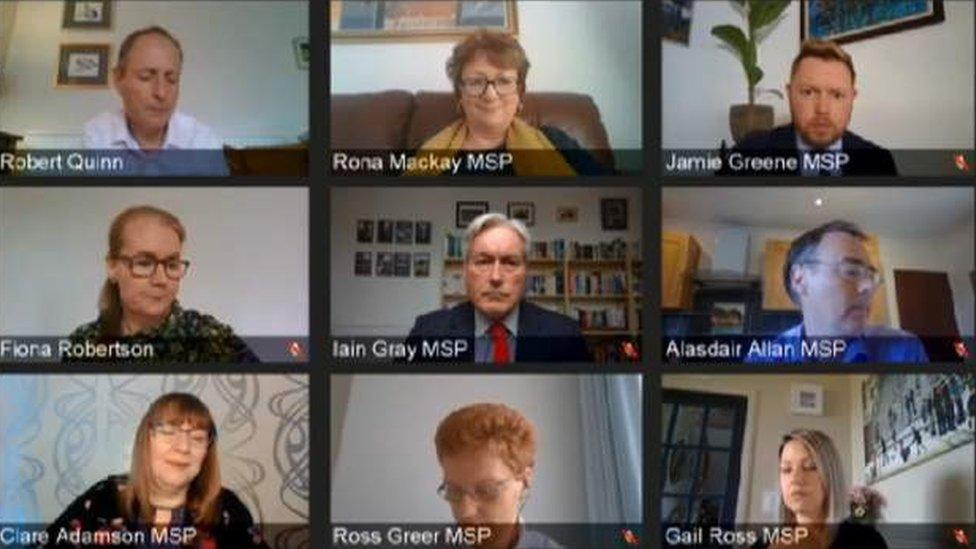
Members of Holyrood's education committee attended remotely on Friday
The MSP says it's time to "seize the opportunity to become a more modern parliament" offering permanent remote working.
She adds that she could reverse her decision to stand down if Holyrood did reform. "It would be wrong of me to say that I wouldn't think about coming back," she says.
This week, Holyrood's presiding officer wrote to MSPs outlining plans for a "fully virtual parliament" to aid social distancing. Current plans could see MSPs speak in debates and vote from home.
Westminster is pushing forward with plans for remote voting, and MPs have now asked virtual questions at two sessions of PMQs.
Angus MacNeil is one MP welcoming these changes. He's represented Na h-Eileanan an Iar for the SNP since 2005. Travelling to Westminster from his home on the island of Barra can take him six hours.
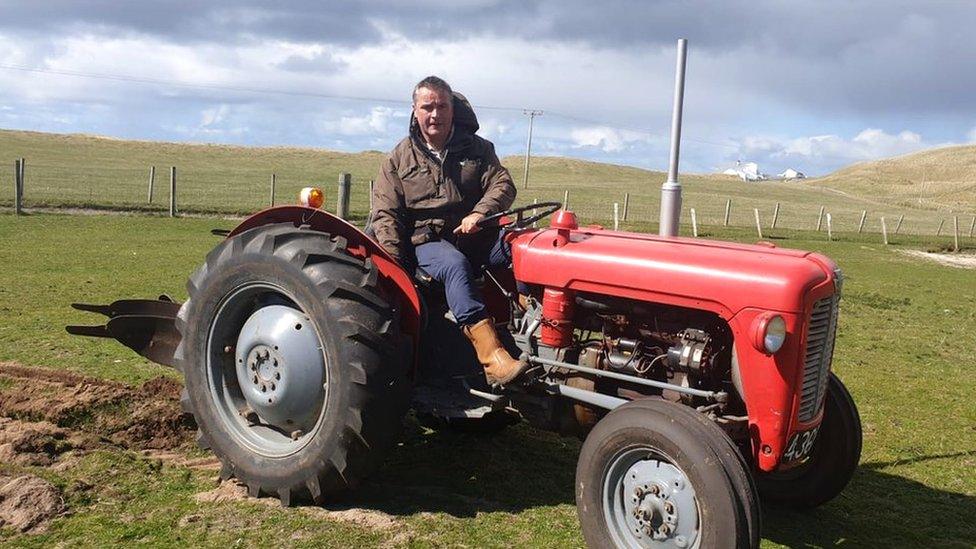
It can take Angus MacNeil six hours to get to Westminster from his home in Barra
He thinks seeing fellow MPs face-to-face is an important aspect of the job, but that more of Westminster's business can be conducted remotely in the future.
"I've got a better internet connection on the west side of the Outer Hebrides than I do in the [London] office," he says.
The backbencher has even chaired a session of the International Trade Committee from home.
"This technology's shown that last year we didn't need to burn a quarter tonne of carbon dioxide to go between the Outer Hebrides and Westminster," he adds.
The MP struggles to be in his constituency during the week when parliament is sitting, which makes visiting certain businesses difficult. Remote working could offer a solution.
But some urge caution at the idea of making the coronavirus measures permanent.
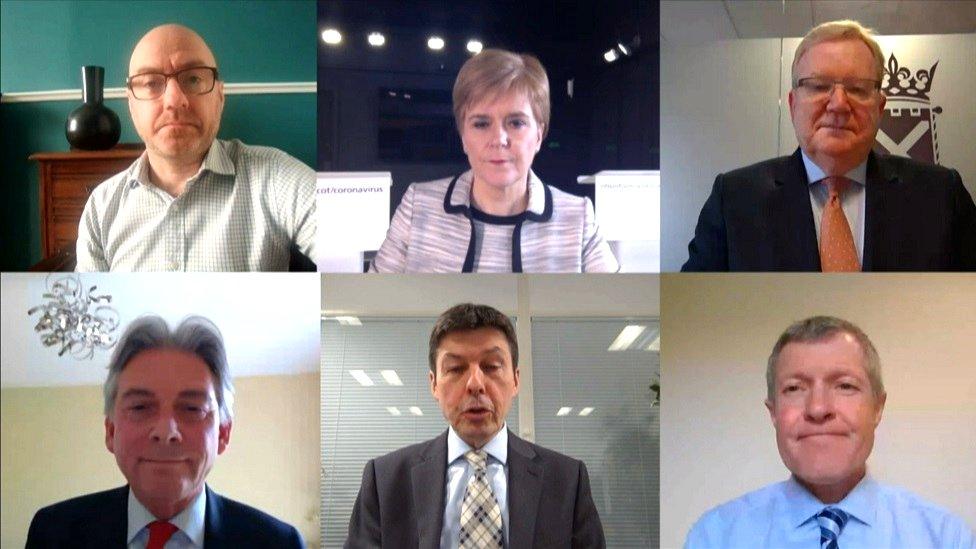
A few weeks ago the first minister was questioned by the other party leaders over a live video stream
Greg Power advised the last UK Labour government on parliamentary reform.
"We have to recognise that a physical presence in a chamber in parliament or the questioning of ministers carries a weight which online questioning doesn't carry," he says.
"If you think about a driving test, when you're being watched you are much more nervous than you would be if you were just driving on your own.
"If ministers know they are being watched they will behave slightly differently."
This isn't the start of a permanent shift in the Commons, according to Cabinet minister Jacob Rees-Mogg. He insists that if MPs didn't have to attend it would "undermine the whole basis of how our parliament operates."
The Leader of the House told an Institute for Government podcast this week: "It's not really that hard to get down even from the furthest parts of the United Kingdom" and "if people don't want to be MPs nobody's forcing them to stand for parliament".
A Scottish Parliament spokesperson said: "Any decisions about the use of these measures beyond the current public health emergency will be considered at a later date."
- Published21 April 2020
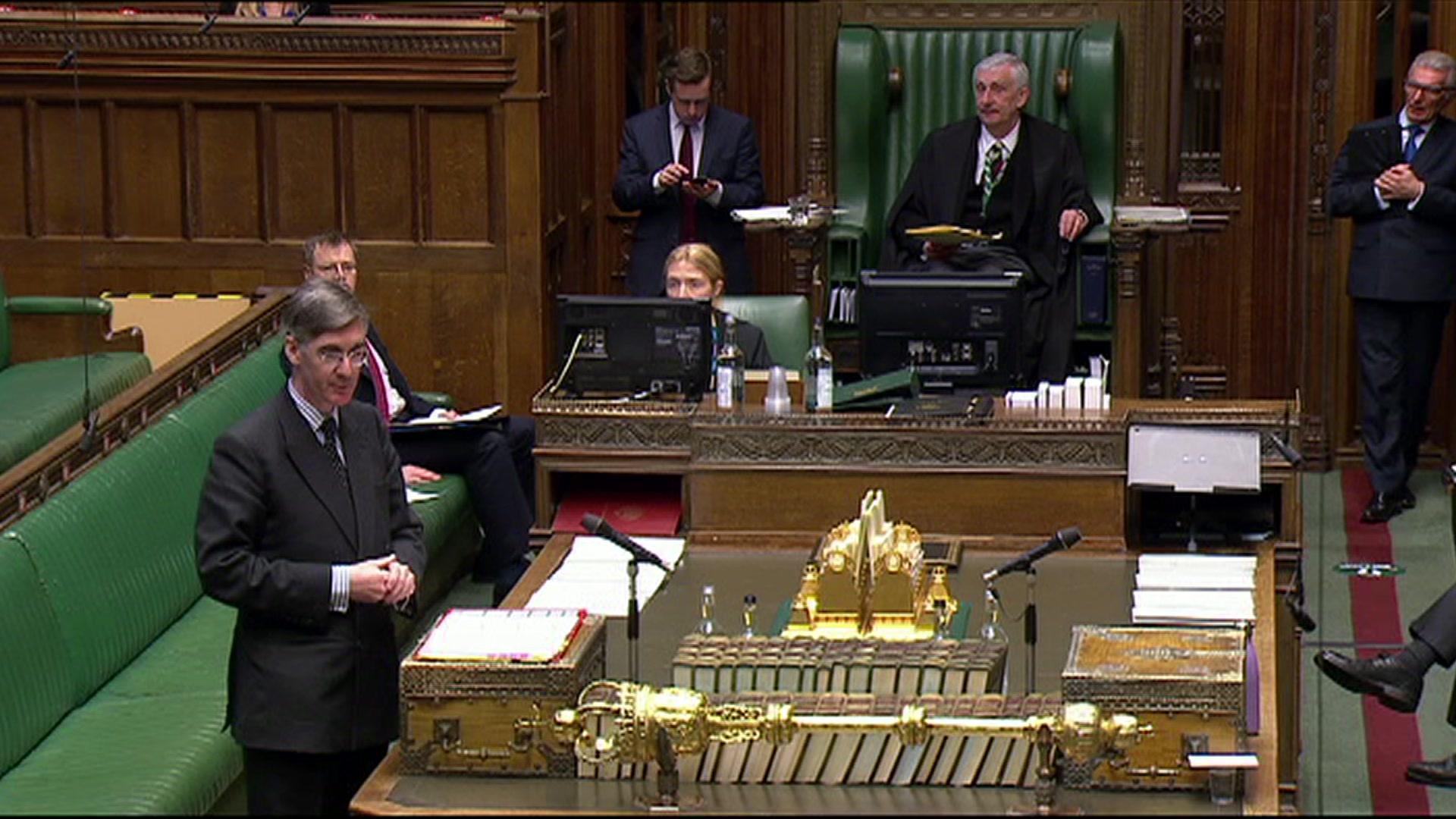
- Published2 April 2020
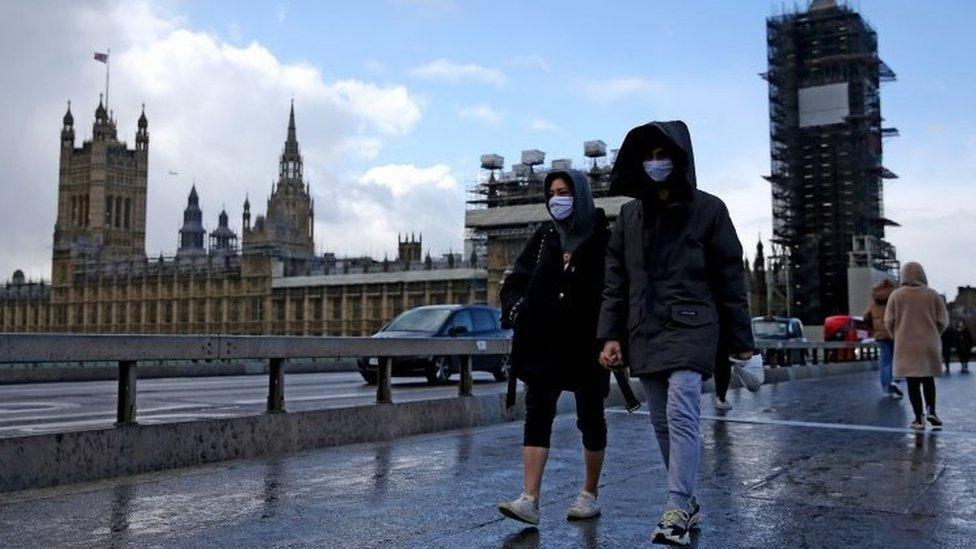
- Published27 February 2020
